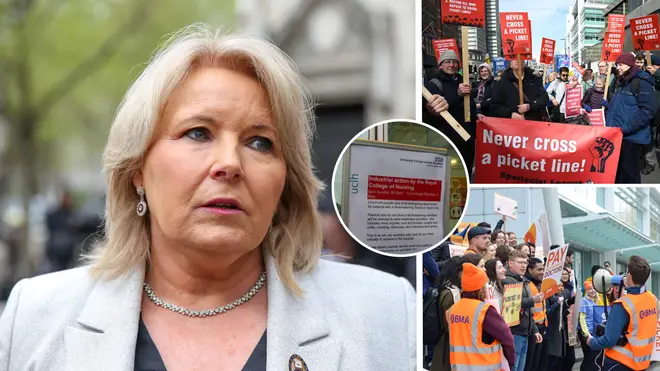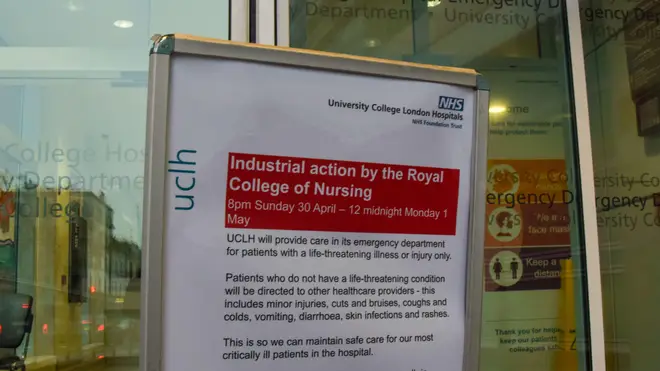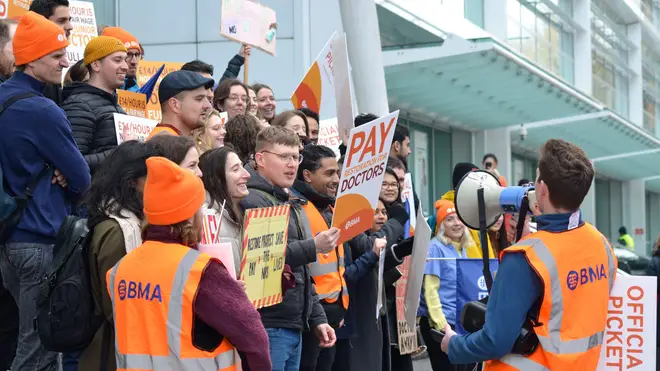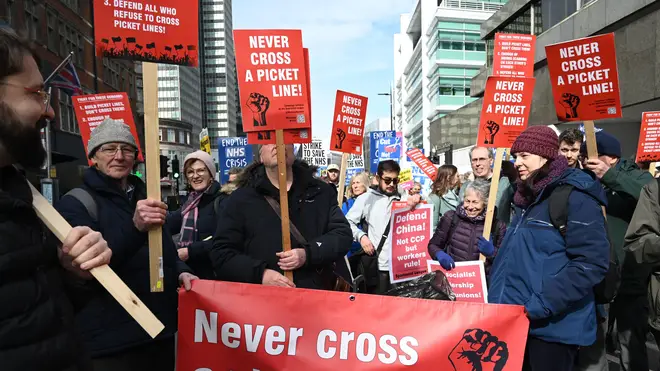
Shelagh Fogarty 1pm - 4pm
1 May 2023, 10:00 | Updated: 1 May 2023, 10:02

The leader of the Royal College of Nursing (RCN) has warned strikes could last until Christmas amid the biggest nurses strike in NHS history.
Cancer nurses have gone on strike for the first time as part of a 28-hour walkout by frontline NHS staff that bosses warn will leave hospital staff levels 'exceptionally low'.
The strike by thousands of members of the Royal College of Nursing (RCN) began at 8pm on Sunday night and will end at midnight on Monday.
RCN boss Pat Cullen granted last-minute guarantees that staff care will continue at already-stretched hospitals like Great Ormond Street.
Read more: GMB union votes to accept NHS pay offer after Unite rejects deal

"It is for the secretary of state to come back around the table and put a better offer on the table," Ms Cullen told Sky.
If not, the UK could "see our nursing staff on picket lines up until Christmas. But we don't want that".
"We do need to bring this health service back from the brink."
Britain's biggest children's hospital said it was "incredibly grateful" to the RCN.
NHS England has warned that staffing levels in some places will be “exceptionally low, lower than on previous strike days”.
Health Secretary Steve Barclay called the strike "premature" and "disrespectful".
He won a crucial victory at the High Court last week which prevented staff from continuing the walkouts into Tuesday.
Meanwhile the NHS Staff Council of health unions, employers and Government representatives will discuss the Government’s 5% pay offer on Monday.

Ms Cullen told Sky News on Sunday: “There are national exemptions in place for a range of services, for emergency departments, for intensive care units, for neonatal units, paediatric intensive care units, those really acute urgent services.
“In fact, it was the Royal College of Nursing who contacted NHS England to ask for a process to be put in place so that we make sure that the strike was safe for our patients.”
NHS England said those in need of non-urgent care should go to pharmacies or dial 111 first.

Dame Ruth May, chief nursing officer for England, said: “We are grateful to the RCN for agreeing a process of safety critical mitigations and we continue to support all nurses, those who work and those who take industrial action.
“These mitigations do not represent a return to standard staffing. The industrial action will still have a very significant impact on services during the strike period and patients can expect to see longer waits for care.
“The public should use the NHS wisely, with those needing non-urgent care using pharmacies and 111 online as their first port of call. And if you have a life-threatening emergency, please seek help in the usual way by dialling 999.”

David Lammy's take on nurses strike